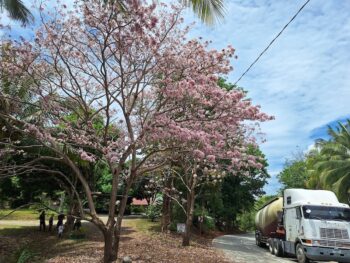KUALA LUMPUR (MindaNews/29 April) — The Office of the Secretary-General of the Organization of the Islamic Cooperation (OIC) was a no-show as an observer in the April 24 talks between the Philippine government (GPH) and the Moro Islamic Liberation Front (MILF).
The Secretary-General’s Special Envoy for Peace in Southern Philippines, Ambassador Sayed Al Masry. was on his way to Kuala Lumpur but had to return to Egypt on an emergency, the chairs of the GPH and MILF peace panels told MindaNews.
The two panels in March approved the request of the OIC Secretary-General’s office to sit as observer in the 15-year old talks.
The approval of the OIC’s observer status was contained in the Joint Statement signed by GPH panel chair Marvic Leonen and MILF panel chair Mohagher Iqabal with Malaysian facilitator Dato Ab Ghafar Tengku Mohamed on March 21.
But while Al Masry wasn’t able to make it to the April 24 talks, there were new faces at the negotiating table: the panel consultants.
The government peace panel had Philippine Ambassador to Malaysia Eduardo Malaya while the MILF had Sheikh Mohamad Fauzi of the Ulama Council and Sonnie Davao, a base commander. Lawyer Blo Adiong, former administrator of the Southern Philippines Development Authority (SPDA), sat in the MILF secretariat.
The OIC, a 57-member pan-Islamic body, brokered the peace negotiations between the Philippine government and the MNLF that led to the signing of the 1976 Tripoli Agreement and the 1996 Final Peace Agreement (FPA).
The MNLF has been holding an observer status in the OIC since 1977 and has been sending delegations to OIC meetings in the last 35 years.
The MILF is composed of members of the MNLF who broke away from the MNLF in the late 1970s to form what it initially called the “New MNLF” but which it later renamed to MILF. The leader of the breakaway group was Salamat Hashim, vice chair to chair Nur Misuari.
Hashim succumbed to an illness in July 2003. Misuari was elected governor of the Autonomous Region in Muslim Mindanao (ARMM) a week after he signed the 1996 FPA. He was detained on charges of rebellion from January 2002 to April 2008.
The OIC initially created a Committee of Four that later expanded into the Ministerial Committee of the Six led by Indonesia to facilitate the talks until the signing of the FPA in 1996.
In late June 2000, just as the military was about to attack the MILF’s main stronghold, Camp Abubakar, in the “all-out war “ waged by then President Joseph Estrada, the OIC’s International Conference of Foreign Ministers (ICFM) held in Malaysia, added two more country-members – Malaysia and Brunei – to make it into the Committee of the Eight , to look into the implementation of the 1996 FPA.
The ICFM in 2000, held at the Palace of the Golden Horses (the venue of the April 24, 2012 signing of the “GPH-MILF Decision Points on Principles as of April 2012”), was also the first time the MILF was represented in an OIC meeting, along with the MNLF delegation headed by Nur Misuari. The MILF representative then was Prof. Moner Bajuanid, then head of the MILF Peace Panel’s Technical Committee, now a Commissioner of the National Commission on Muslim Filipinos.
It was also the first time the Philippine government was represented in the OIC, as guest.
The talks collapsed after the government’s capture of the MILF’s Camp Abubakar. The MILF disbanded its peace panel on August 21, 2000 and would form a new one only after Estrada was deposed and then Vice President Gloria Macapagal-Arroyo assumed the Presidency. She vowed an “all-out peace” in contrast to Estrada’s “all-out war.”
But under her administration, two wars against the MILF would break out: the 2003 Buliok war and the 2008 post-MOA-AD war. She disbanded her peace panel on September 1, 2008 and set up a new one in December that same year.
Meanwhile, in 2006, the OIC initiated the Tripartite Review of the implementation of the 1996 GPH-MNLF peace pact, expanding the Committee of the Eight membership into the 11-country Peace Committee for Southern Philippines (PCSP), with Indonesia as chair.
The first Tripartite Review was held in Jeddah in November 2007.
An Ad Hoc Hi-Level Group meeting of the OIC-GPH-MNLF Tripartite Implementation Review Process was held in Bandung, Indonesia in early March 2012 “to review the remaining unresolved issues to complete the implementation of the FPA.”
The GPH-MILF and GPH-MNLF have been moving as two tracks. The Arroyo administration tried to get the two tracks together but failed.
The Aquino administration has repeatedly said it wants a “convergence” of the three tracks — the GPH-MILF peace talks, the GPH-MNLF-OIC review of the implementation of the 1996 FPA along with its reform agenda in the Autonomous Region in Muslim Mindanao (ARMM), the core territory of both the GPH-MILF and GPH-MNLF peace tracks. (Carolyn O.Arguillas/MindaNews)
